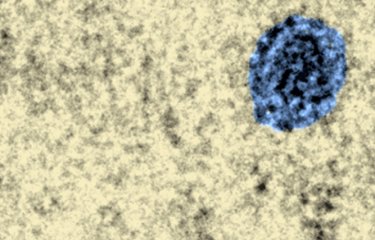-
News | 2019.06.04
At the Institut Pasteur, a new insectarium for arbovirus mosquito vectors
The Institut Pasteur in Paris has opened a vast new insectarium for rearing mosquitoes with the potential to transmit arboviruses – viruses transmitted between vertebrates via a bite from a hematophagous vector. By rearing large quantities of mosquitoes in controlled conditions at this new facility, scientists will be better equipped to tackle future challenges associated with emerging vector-...
-
News | 2017.02.01
Sign up for the upcoming Institut Pasteur MOOCs
As a leading biomedical research center in many fields of health, the Institut Pasteur also has an education center which contributes to the dissemination of scientific and medical knowledge. Some of the Education Center's course offerings are digital, including three MOOCs whose registration period is currently underway, on the topics of medical entomology, epidemiology and...
-
Article | 2017.11.10
MOOC Microbes & Brain
Historically, microbes were considered as potential threats that could be harmful to us, in particular to our brain, considered for long as a privileged organ, particularly sensitive to infections and inflammation. However, our vision of the microbial world has evolved and we are now paying more and more attention to this world that is intimately living within us and may be beneficial for our...
-
Article | 2018.03.28
ASIDE project: Surveillance and health alerts
In a context of increasing globalization of trade, the growth in international flows of travelers and goods fuels the spread of infectious diseases. The need for a global alert and response network for infectious diseases and public health emergencies of international concern led to the 2005 revision of the International Health Regulations (IHR). Coordinated by the Institut Pasteur, the...
-
Portrait | 2018.09.04
Humans, animals and their environment, an investigation by Victor Narat
You have no doubt already heard about emerging viruses. The international media regularly informs us about viruses raging across the world, for instance Zika, Ebola and dengue. But where do they come from? Mosquitoes, bats, rodents and primates carry viruses, and when humans share an area with these species, they are exposed to various infectious risks. To shed light on this situation, known as...
-
Document de presse | 2020.05.26
MV-SARS-CoV-2 vaccine candidate: a new partnership between Institut Pasteur, CEPI, Thémis and MSD
Institut Pasteur announces recent advances in the development of one of its candidate vaccines, MV-SARS-CoV-2, using the measles vector, as part of a renewed partnership with CEPI and the companies Thémis and MSD.With over 100 vaccine projects in development worldwide, the development of a vaccine against SARS CoV-2 infection remains a challenge, with many scientific uncertainties ahead. The...
-
Article | 2020.10.14
Covid-19: vaccine against SARS-CoV-2 infection, using the measles vector
Phase I testing in humans for the Institut Pasteur's SARS-CoV-2 vaccine candidate using the measles vector was lauchned in August 2020 in France and Belgium. Following the intermediate results of the Phase I clinical trial, the Institut Pasteur is stopping (January, 2021) development of the vaccine candidate based on the measles platform.
-
News | 2020.11.24
Yellow fever: risk of virus transmission in the Asia-Pacific region
A study, the most comprehensive assessment of vector competence, shows that Aedes aegypti mosquitoes from the Asia-Pacific region are capable of transmitting yellow fever virus. This indicates that vector populations are seemingly not a brake to the emergence of yellow fever in the region.Viral pathogens with high epidemic potential have been historically a major concern for human health. Large-...
-
Fiche maladie | 2015.10.06
West Nile
West Nile virus mainly affects birds, but it can also infect humans and other mammals. It was named after the West Nile district in Uganda, where it was first isolated in 1937 in a woman suffering from high fever. The virus is transmitted through the bite of infected mosquitoes. It primarily occurs in temperate and tropical regions and is endemic in Central Europe, Mediterranean countries and...
-
Article | 2019.08.06
Vaccinology and Immunotherapy Initiative: Innovation – Vaccine Candidates
The Institut Pasteur has a distinguished history of vaccine development as a means to improve global health. A stronghold of the Institut Pasteur in vaccines is the development of novel technologies for vaccine design and delivery with several candidates currently under clinical evaluation, either licensed to development and commercialization partners or under Institut Pasteur sponsorship.

